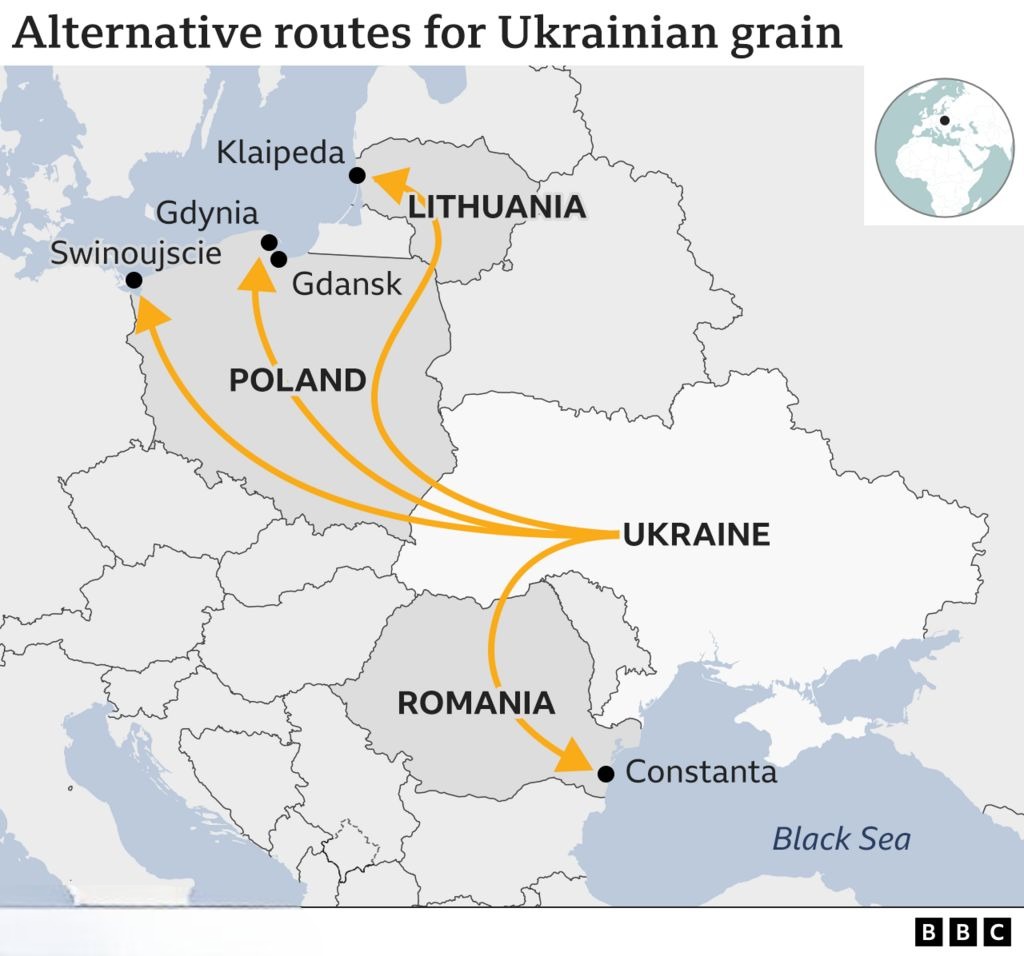India supports U.N. on Black Sea initiative
Context:
India expressed its support for the UN’s efforts to carry out the Black Sea Grain initiative and its desire for a speedy end to the deadlock.
Background Of the Black Sea Initiative
- Agriculture in Ukraine is Important:
- Due to its considerable contribution to worldwide wheat exports (10% of the share) and sunflower oil (almost half of the supply), Ukraine is referred to as “Europe’s breadbasket”.
- Black Sea ports have historically been the departure point for around 90% of Ukraine’s grain exports.
- Effect of the Russian invasion
- The Black Sea trade route was disrupted by Russia’s invasion in February 2022, which also limited Ukraine’s food shipments by obstructing it with fleets and mines.
- This put a lot of pressure on the world’s food supply, along with other problems like droughts in various locations and disruptions in the supply due to COVID-19.
- Fears of a global hunger crisis emerged as the price of food increased globally.
- Black Sea Grain Project
- To lessen the food crisis, Turkey and the UN-mediated the Black Sea Grain Initiative in July 2022.
- Three Ukrainian Black Sea ports—Odesa, Chornomorsk, and Pivdennyi—were permitted to export commercial fertilizer and food under the terms of the agreement.
- Teams from Ukraine, Russia, Turkey, and the UN would inspect ships leaving these ports. They would avoid minefields by taking a predetermined path to Istanbul.
- The Initiative’s Effects
- The action allowed for the continuation of Ukraine’s grain exports via the Black Sea route, which helped to stabilize world food prices and avert serious food shortages.
- However, not all grain went to food-insecure places as initially envisioned by the UN. China emerged as the biggest purchaser, buying about 25% of Ukrainian grain shipped out.
- Impact on the economy of Ukraine:
- The Black Sea Grain Initiative helped to alleviate some of the economic hardship that the Russian invasion had caused in Ukraine.
- The agricultural output of Ukraine has decreased by almost 35% since the beginning of the war.
- Planning and planting are becoming increasingly difficult as a result of the prolonged battle, which also increases the cost and difficulty of everything. Even in areas that have been liberated, some agricultural areas are located near the front lines of a conflict and may be at risk from landmines.
- Alternative Routes’ Challenges:
- To handle the same volumes by train, truck, or canal routes into European ports, the infrastructure and capacity are insufficient.
- Political unrest has resulted from attempts to use these alternate channels since farmers in nearby European nations have complained that Ukrainian grain is flooding their local markets and driving up costs.
What is India’s Stand on Russia’s Exit from the Deal?
- India expressed its support for the UN’s efforts to carry out the Black Sea Grain initiative and its desire for a speedy end to the deadlock.
- Russia said on Monday that it was ending the Black Sea Grain Initiative, a UN-mediated agreement that permitted grain and fertilizer exports from Ukraine despite the country’s ongoing hostilities with Russia.





